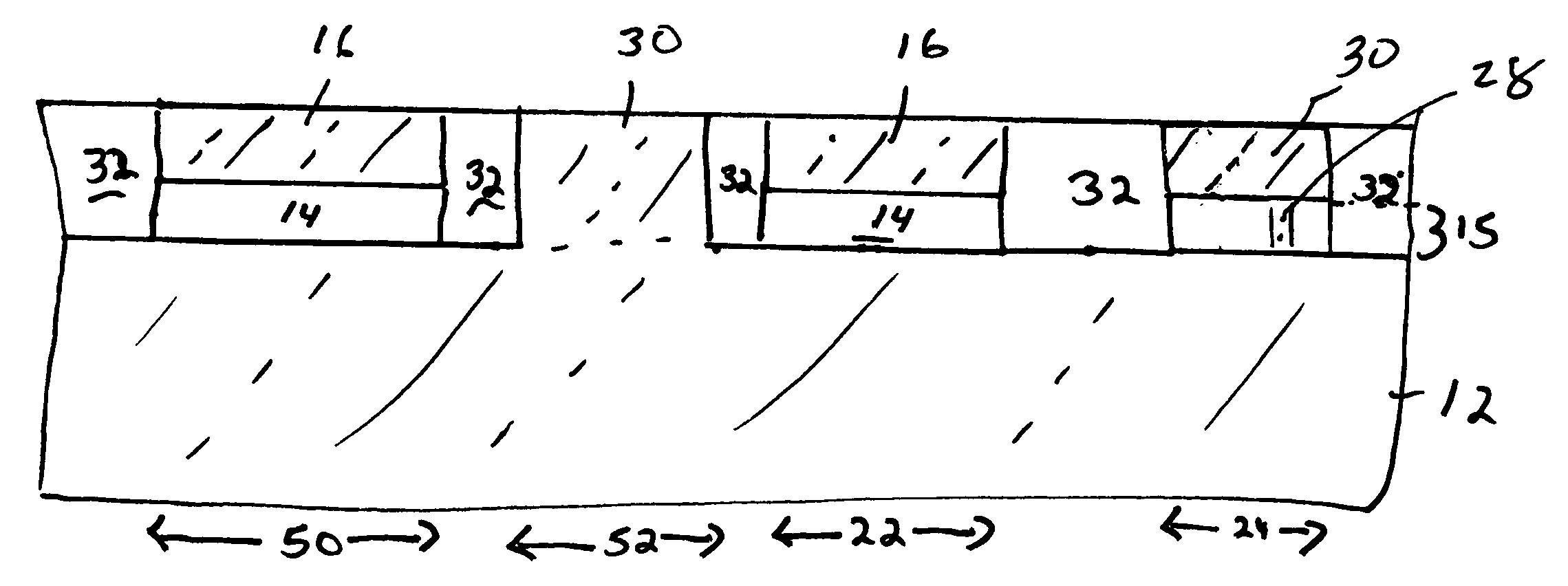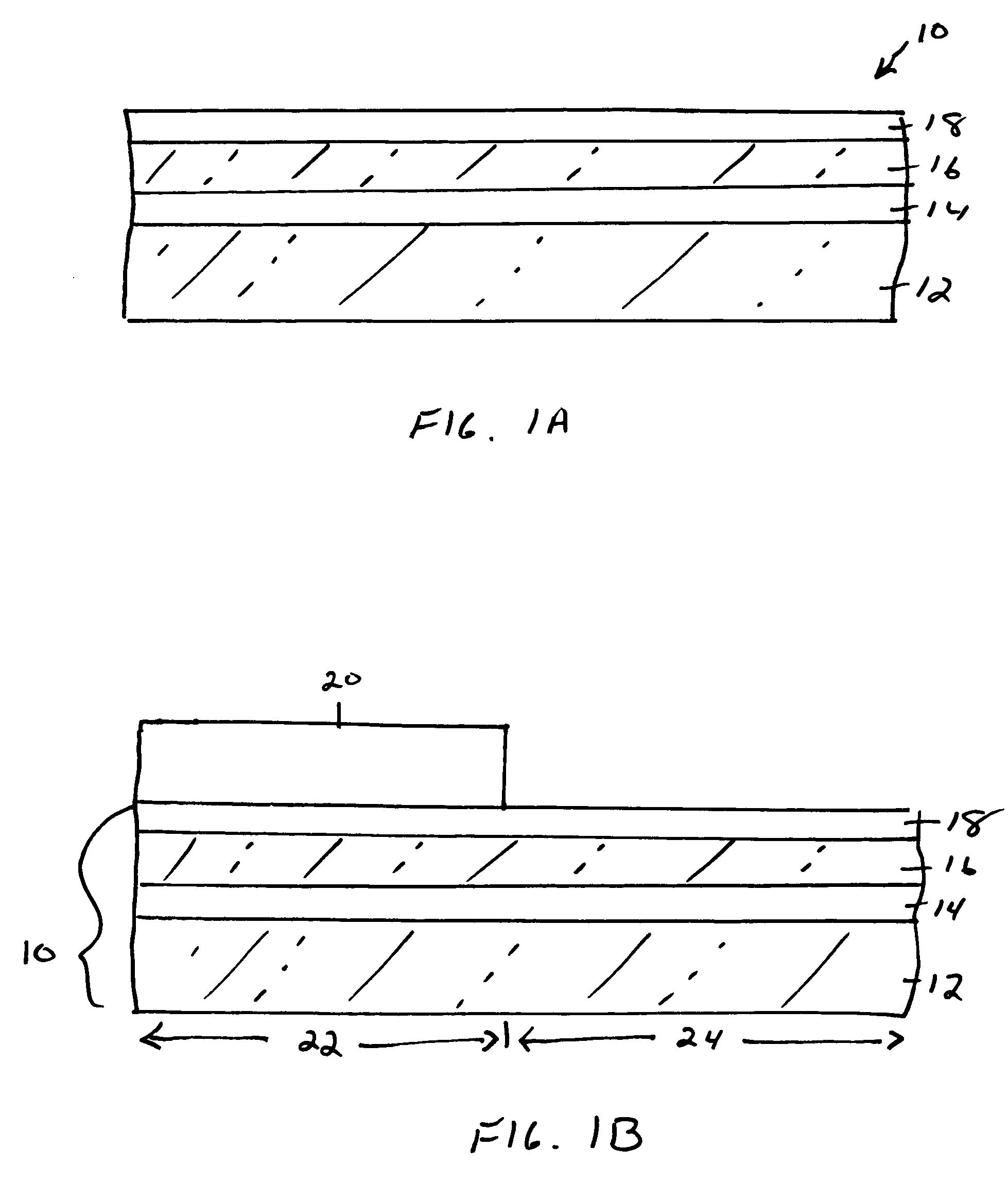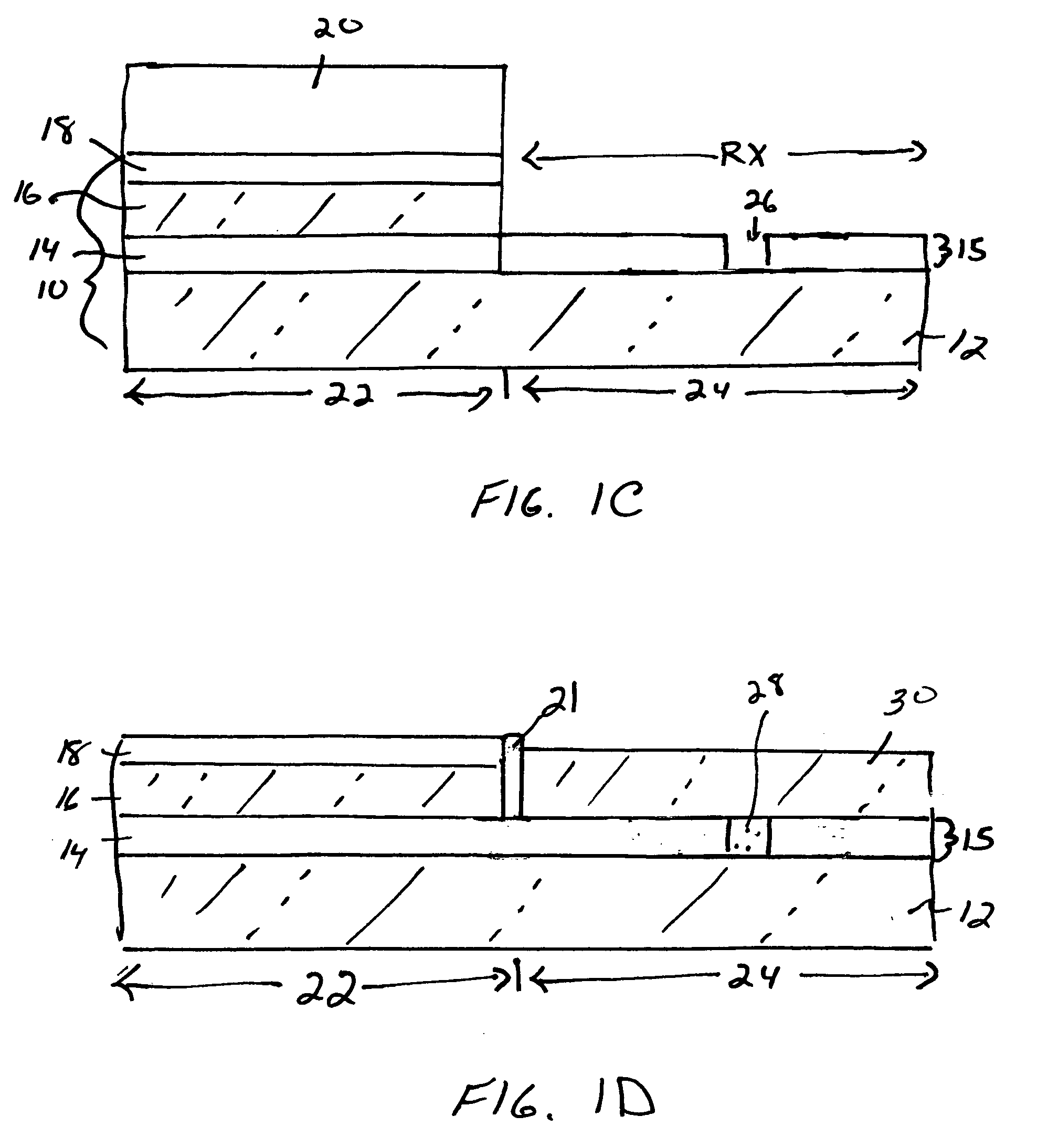Structure and method of fabricating a hybrid substrate for high-performance hybrid-orientation silicon-on-insulator CMOS devices
a technology of hybrid substrates and silicon-on-insulators, applied in the direction of semiconductor devices, basic electric elements, electrical appliances, etc., can solve the problems of significant deformation of electron mobilities on (110) si surfaces, undesirable width of pfets, and completely inappropriate orientation of nfet devices, so as to improve the performance of creating soi-like devices and enhance the performance of each type of devices
- Summary
- Abstract
- Description
- Claims
- Application Information
AI Technical Summary
Benefits of technology
Problems solved by technology
Method used
Image
Examples
Embodiment Construction
[0032] The present invention will now be described in greater detail by referring to the drawings that accompany the present application. The drawings are provided for illustrative purposes and thus the same are not drawn to scale. It is noted that in the drawings and description provided below, the counter-doped region is formed into the second semiconductor region. Although this embodiment is described and illustrated, the present invention also contemplates forming the counter-doped region into the first semiconductor region rather than the second. Also, although the drawings show the presence of one counter-doped region, the present invention contemplates forming more than one counter-doped region.
[0033] Reference is first made to FIGS. 1A-1G which illustrate the basic processing steps used in the present invention for providing the inventive semiconductor structures, e.g., hybrid substrate and CMOS devices on said hybrid substrate. The inventive process begins by providing sub...
PUM
 Login to View More
Login to View More Abstract
Description
Claims
Application Information
 Login to View More
Login to View More - R&D
- Intellectual Property
- Life Sciences
- Materials
- Tech Scout
- Unparalleled Data Quality
- Higher Quality Content
- 60% Fewer Hallucinations
Browse by: Latest US Patents, China's latest patents, Technical Efficacy Thesaurus, Application Domain, Technology Topic, Popular Technical Reports.
© 2025 PatSnap. All rights reserved.Legal|Privacy policy|Modern Slavery Act Transparency Statement|Sitemap|About US| Contact US: help@patsnap.com



